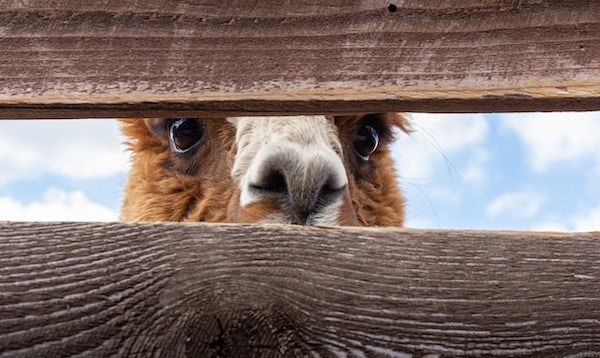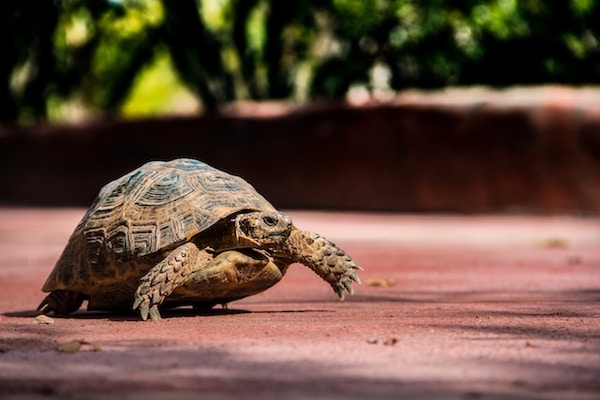Five tips to continue being interested in anything and make progress long after the newness has worn off.
If you’d prefer to 🎧 listen to this episode, go here. Or continue reading...
When we start something new, we always feel excited. There’s a burst of energy because our creativity’s stoked and there’s so much potential! There’s also this sense of anticipation of, “Where’s this going to lead? It could lead to this. It could lead to that. Wow!”
This is applicable whether it’s a new relationship, or a new project, or a new course that you’ve joined, or a new business you’ve started…anything new.
But after a point of time, the energy dwindles, falls
Quite often it either comes to a screeching halt, or you feel forced to keep going and you drag yourself through it even though you don’t have the same enthusiasm that you did when you started it.
This is why it’s important for us to take a step back and think before we begin something, before we commit to something. Not that we should stop ourselves from doing it, but to think about how to make it a sustainable, steady, long term relationship – with the work, the project, another person, whatever.
So here are a few things to keep in mind…
One, don’t over commit
When we’re starting something, we feel like we can give a lot more of ourselves, our time, our attention to it than we actually, practically can. So take it slow, take it easy. Start only with small steps.
Dabble, dabble and then slowly grow the amount of time, the amount of effort, attention you give to this particular project.
Two, keep the interest, the curiosity, the mystery going

For this, you shouldn’t do too much. Keep a certain time limit to how much of your attention, your work, your effort is going to go into this project every day.
Instead of jumping into it like, “This is awesome! I’ll do three, four hours of this work and deep dive into it”. Doing that for three, four days and then get burnt out and losing interest and never getting back to it…Instead say, “I’m gonna do this only for 15 minutes a day”, for example. Depending on the project, it could even be 30 minutes, etc.
Or it could be a limit on the quantity, even if time isn’t taken into consideration. For example, if you’re writing a book, you’d write a certain number of words a day. Or if you’re building a course, you’d create only one section of it per day. If it’s school work, a course that you’ve signed up for, you’re learning something new, even with that, limit yourself to a certain number of chapters. “I’ll do those and that’s about it for today.”
It’s okay if the pace is really slow, and the quantity is really small
In fact that’s what’s going to see you through for a much longer time. So if you say, “I’m going to do only one lesson per day”, that’s fine. That’s absolutely fine. But ensure you limit yourself, don’t get so enthusiastic, so deep into it that you run out of the interesting stuff.
When you do this, when you limit yourself, you’re always looking forward to the next thing. You’re always like, “Okay, I’ve finished my 10 minutes of this particular project, this particular creative work, and I’m done. I’m not going to touch it now even though I feel tempted to.” And then the next day, you’re really looking forward to starting it again. So give yourself those limits and stick to it.
Three, stretch your timelines
You don’t have to do something every single day or connect with somebody every hour of every day. Or study something constantly. You don’t have to do stuff that regularly.
Again, like I said, we believe we can give a lot more time to something than we actually can. And things take a lot more of our energy, our effort, concentration, focus…a lot more of all that than we think it will.
In the beginning, just because we like it so much, we’re so passionate and enthusiastic about it, that energy takes us through. And it makes it feel like it’s easy. But actually in the long run, it isn’t. So stretch your timelines and that’ll make it last longer.
You can give it a lot more attention if you give yourself more time
Like, for example, my podcast. I do one episode per week, even though I’m often tempted to do more. I get ideas and I’m like, “oh, I have to do a podcast episode about this.” But I don’t allow myself to do it. I note down the idea and I just keep it aside, but I won’t do it. I’ll give myself only one per week.
I’ve learned that it takes a lot of effort, and I’ve realised by doing one per week, I’m being a lot more consistent with it than I was before.
It’s the same with any other creative project you’re involved in, any lesson, anything that you’re building, creating, learning. Give yourself extra cushioning of time as you approach it, right from the beginning. And that’s going to help you, going to see you through.
Four, don’t compare, don’t be too ambitious
There’s a very good chance you started or you’re planning to start something because somebody around you is doing it. It could be someone you know, in your real life like a friend or family member, or it could be somebody you follow online. It could be anybody you know, but you’re probably starting because of that.
Also, very often when it comes to inculcating habits, like say, exercising, we sign up for classes or do it along with a friend or two. That tends to happen sometimes.
Let each person person have their own goals, have their own pace. You don’t bother about it. Don’t compare yourself to their pace. It doesn’t matter. You’re doing things in your own way.
And don’t be so ambitious. It’s okay to progress a little, stay still in that position, enjoy the stillness of it, get really steady, build a strong foundation, be really firm and comfortable, before you move on to the next step.
It’s okay to go really, really slow and steady

Again, this’ll stop you from burning out, or you know, feeling guilty when you’re looking at others’ progress. Or feeling less-than, especially judging yourself. Let go of all of that.
You do things at your own pace. We all know the story of the hare and the tortoise. Remember that. Some of those folk stories, those kids stories, they’re there for a reason. They were told to us for a reason.
So don’t get too competitive, either with yourself or with others. Don’t be too ambitious. Allow yourself to enjoy the process.
These are the four things I wanted to share today. There’s so much more to consider when we think of starting something new, think of productivity and all that…Oh yeah! And one final thing I do want to add…fifth point, bonus point.
Five, when you start something doesn’t matter
Just because it’s a new year now, it’s not necessarily the time to start. Come on, it’s winter, okay? This is not the time when we have the most energy in us! It’s actually very impractical to think that New Year is the time to start new things.
If you live in India, then you know that all across the country, different states celebrate New Year at different times of the year. During spring – March, April. On summer solstice. During the harvest season…
So, you know, New Year is just a weird concept. You don’t have to start anything new right now. That’s the most important thing to remember.
Start something only because you feel like, and not because you feel pressured to do so, like you’re expected to do so
Maybe start something in spring, start something at the end of March. Why not, right? The accounting year! You start something at the beginning of the accounting year, first of April. Haha
Yeah that’s it. That is really it now. If you enjoyed this episode, please do share it with anybody you like, anybody you feel may find this information useful. And follow me on whatever app you’re listening to this on, and leave a review.
All right, thank you. Talk to you again next week. Take care.
I use Otter for all my transcriptions, and it’s awesome! Try it out.
Listen to the episode on the audio player below 👇🏽 (or on any podcast app that you like).
If this is your first time here, I invite you to find out more about The Feel Good Factor Podcast. If you think this content can help someone, do share the episode with them. I’d also greatly appreciate a rating/review wherever you listen to podcasts. They help the show get discovered by more people who resonate with this kind of message.
Susmitha Veganosaurus

“I read voraciously, find humour in most things, and I’m most in my element when I’m teaching, writing, and playing with clay. I believe authenticity and kindness are the keys to world peace. Sign up for myfree newsletterwhere I share conversational emails with stories about Life and Business Tips, Vegan Hacks, Holistic Guidance, and more.“